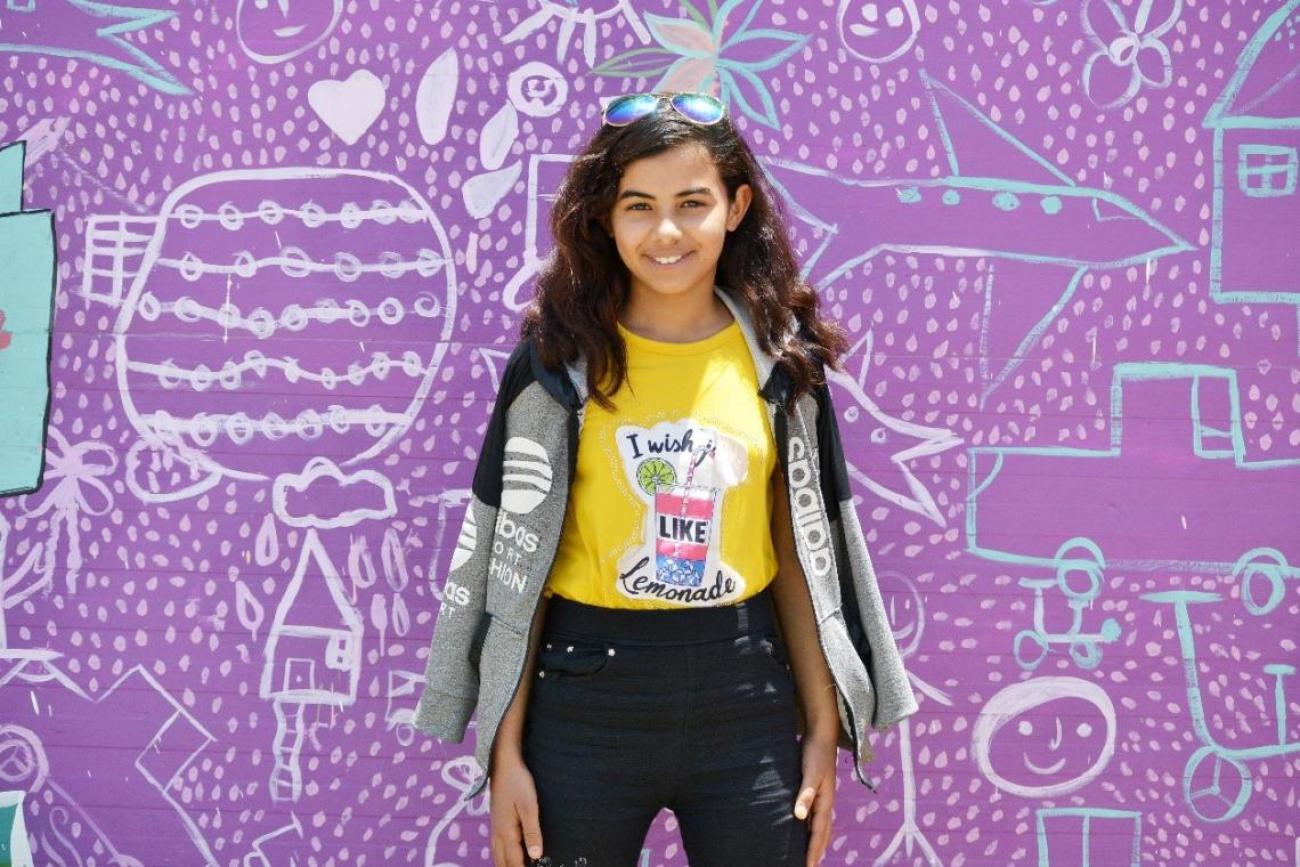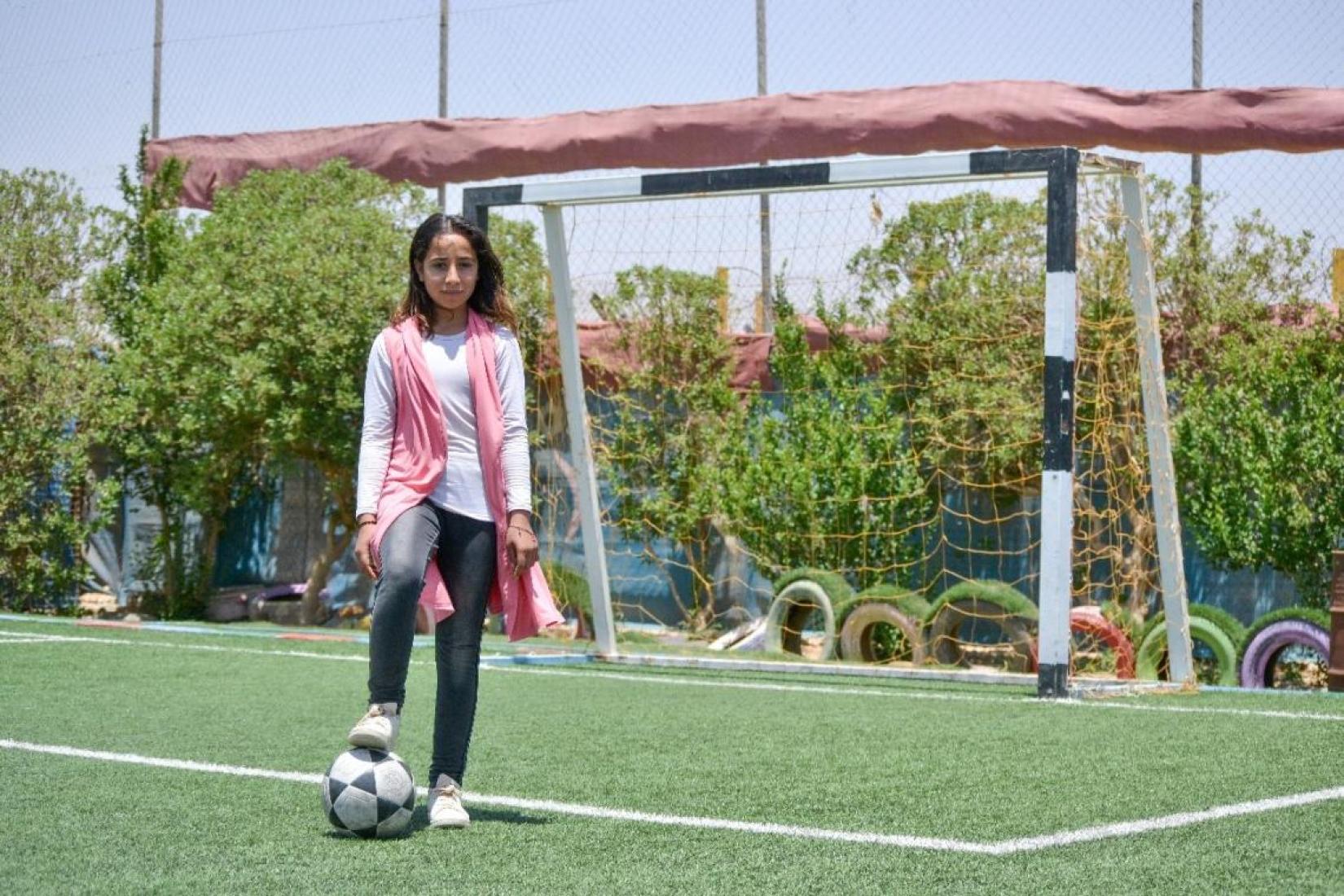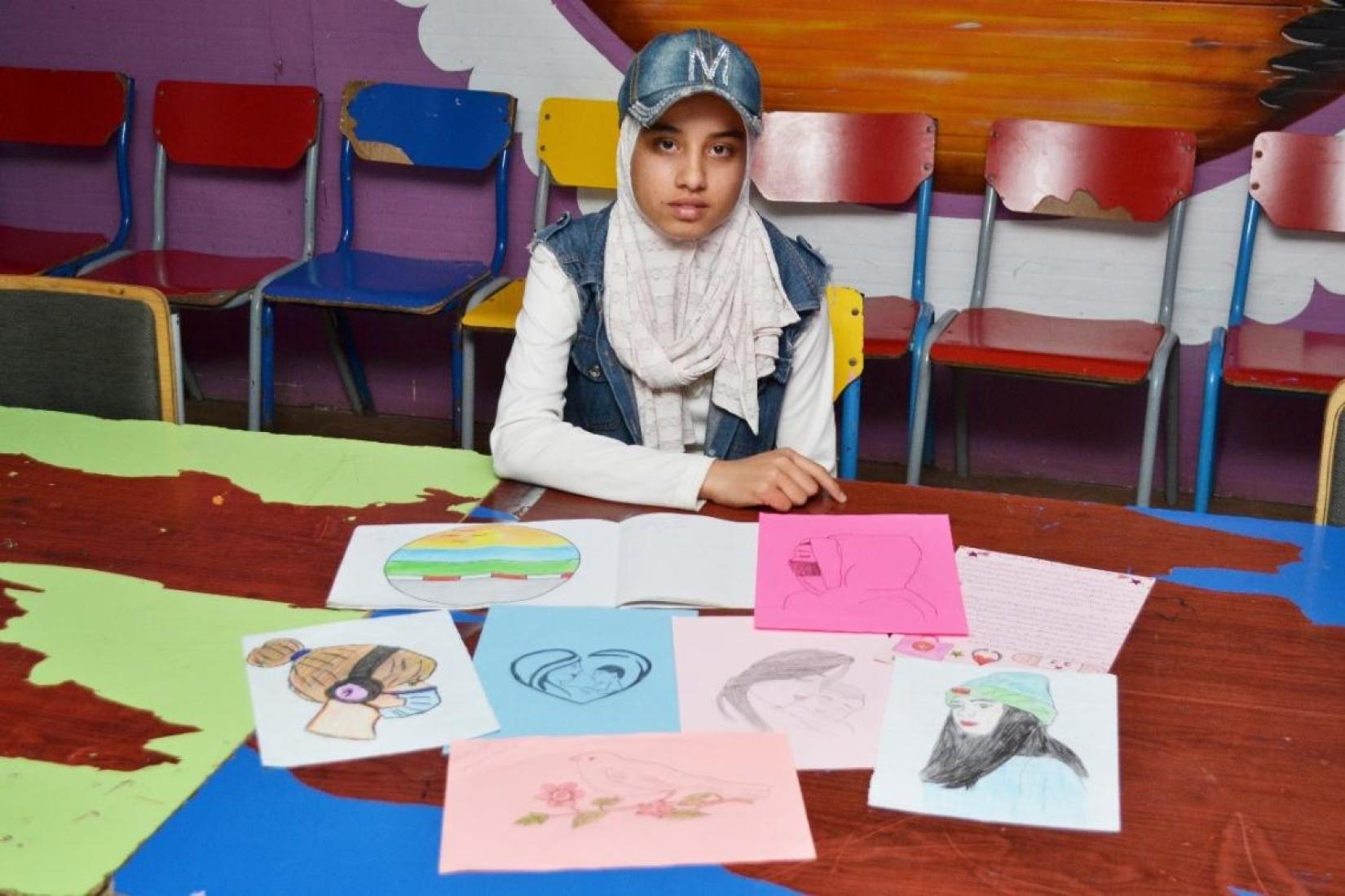A footballer, an Astronaut and an Artist walk into a Makani

Without Makani centres, children in Azraq would lack guidance for the future.
With Azraq Refugee Camp having been established in 2014, it’s safe to safer that even the youngest of arrivals in the camp are now coming to an age where ambitions begin to run high and plans for the future start to unfold.
This is where Makani centres play a vital role in helping young people to be able to have additional classes to improve their learning, a safe space to engage in extracurricular activities, and a safe space to express themselves.
Moodie, 12 years old, originally from Aleppo, Syria, knows the importance of the centre she attends. “My friend and I attend here regularly and it’s safe to say that we are top of our class at school, thanks to the extra support from Makani” says Moodie. “Here we have learnt about space and it has given me the hunger to read more about it and look at ways I can become an astronaut!” Moodie knows that this ambition requires hard work and dedication, but with the support of the centres she feels it could really be achievable. “We feel included here, we feel as if we matter.”
UNICEF-supported Makani centres not only provide a safe space to develop upon essential school subjects such as Arabic, English and Maths, but also gives vulnerable children and young people a chance to find new passions and interests within a variety of extracurricular activities, such as drama classes, art, music and sports. Thanks to the generosity of UNICEF’s partners, the German Development Cooperation (BMZ/KfW), the European Union, the Republic of Korea, and the Abdul Aziz Al Ghurair Refugee Education Fund, Makani centres can continue to offer such services to vulnerable young people in Jordan.

Keefah, 13, Grade 6 is originally from Raqqah, Syria. Here earliest memories in Azraq Refugee Camp are when she arrived around the time of Eid and receiving gifts and candy from strangers.
“This centre means the world to me” says Keefah. “I was introduced to football here and I’ve been hooked ever since.”
The chance to play football in a safe space, together with other girls and away from harassment is an opportunity which Keefah relishes.
“Football has taught me how to compete and to experience the highs and lows of winning and losing. These are good lessons for us and our maturity.”

Like Keefah, Iqbal, 13, Grade 6, originally from Aleppo, has also found Makani as a way to express herself. Not through sport, but through drawing.
“It’s something I started taking an interest in at home and have developed at the Makani,” says Iqbal. “I started with computer lessons here though. They’ve helped me to become up to speed with the current world.” Iqbal can research topics at lightening speed, use word processing programmes and is learning how to use other programmes.
All three Makani students have found something in the Makani they want to pursue. Whether it be a future in science, sport or art, would it have been possible to have such ideas and pursue them without Makani?
“No,” says Keefah
“I doubt it,” says Iqbal
“It’s sad to think of what my life would be like without this centre,” says Moodie.
UNICEF is grateful for the continuous generosity of the German Development Cooperation (BMZ/KfW), the European Union, the Republic of Korea, and the Abdul Aziz Al Ghurair Refugee Education Fund, whose support to Makani centres provides young people with opportunities to thrive and survive.


